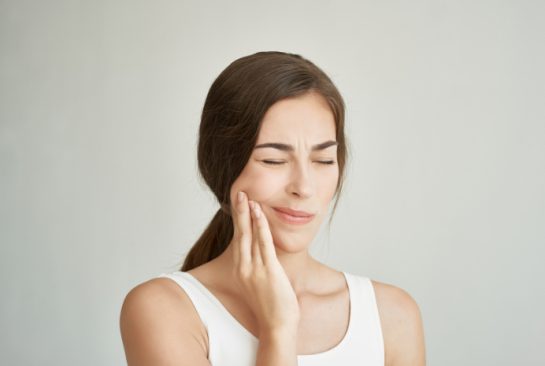- SHOWCASE

Teeth Grinding at Night: Understanding Causes, Consequences, and Advanced Treatments
Dental experts reckon that somewhere between 8% and 30% of adults suffer from bruxism. This is a condition that includes the clenching, gnashing and grinding of teeth and can go undetected for many years. Although bruxism is not only confined to teeth grinding at night, this is by far the most common characteristic of the complaint – along with jaw pain and morning headaches.
Diagnosis
When symptoms of bruxism are noticed, the condition must be diagnosed by a dentist or doctor. This is usually a quick and simple process involving a dental examination and questioning regarding symptoms and family history.
Bruxism is more common among adolescents and younger adults than in older adults, but the symptoms, effects, causes, and treatments are very similar in all cases.
Symptoms
There are two types of bruxism, sleep bruxism and awake bruxism, but the symptoms of both are identical:
- Jaw clenching
- Grinding or gnashing the teeth
- Forward thrusting of the jaw
- Headaches
- Pains in the neck, jaw or shoulder
- Sensitive teeth
Although both types are done subconsciously, awake bruxism is obviously easier to notice as teeth grinding at night is usually first observed by a sleeping partner.
Effects
Left untreated, bruxism can have serious detrimental effects on the teeth and body. Damage caused can include:
- Cracked, chipped and broken teeth
- Worn teeth
- Eroded tooth enamel
- Headaches
- Pain in the shoulders, neck, jaw and ears
- Migraine
Eroded tooth enamel leaves the surface of a tooth unprotected and susceptible to attack from harmful bacteria. This can lead to the formation of an abscess, gum disease and even tooth loss.
Another serious effect of long-term bruxism is temporomandibular joint disorder or TMD. TMDs include over thirty conditions that affect the joint connecting the lower jaw and the skull. These can be very painful and debilitating and may require surgical correction in extreme cases.
Causes
Bruxism is sub-divided into two categories. The first, Primary Bruxism, is not attributable to any medical cause. Secondary Bruxism, however, is linked to a medical condition or medication.
Causes of Primary Bruxism
- Depression, anxiety or stress
- Personality type (aggressive, angry, tense, competitive)
- Family history
- Other likely causes include excessive caffeine or alcohol intake as well as smoking and the use of tobacco products.
- Causes of Secondary Bruxism
- Neurological medical conditions including encephalitis, brain hemorrhage and brain injuries
- Stroke
- Chemical imbalance in the brain
Certain medications have also been linked to secondary bruxism including well-known antidepressants, anti-seizure medications as well as some for treating ADHD (attention deficit hyperactivity disorder).
Treatments
There are numerous treatments available for the treatment of bruxism ranging from simple to complex. Which form of treatment is best will depend upon the type of bruxism and the underlying cause or causes.
Mouth Guard. If teeth grinding at night is the only issue, the problem may be resolved with a fitted mouth guard which keeps the upper and lower teeth separated.
Sleep Hygiene. Following certain routines for sleep may alleviate sleep bruxism. These include sleeping in a quiet, dark and cool environment, avoiding alcohol and caffeine before sleep and minimizing mental stimulation before retiring.
Physical Therapy. A physical therapist can instruct bruxism sufferers in various techniques and exercises to stretch jaw muscles and reduce the tension that can lead to teeth grinding at night.
Medications. If stress, anxiety or depression is the root cause of teeth grinding at night, a medical professional may prescribe suitable medications or sedatives to alleviate the situation.
As a temporary solution, a low dosage Botox injection can be used to relax the jaw muscles and reduce the incidences of bruxism. This treatment can last for several months and should only be undertaken under strict medical supervision.
Self-help
Getting to the root cause of teeth grinding at night is crucial not just for overall good health but also to avoid long-term dental issues. If the cause is purely physical, learning some relaxation techniques can help reduce the frequency and severity of bruxism.
Mental issues including stress or bouts of depression should be brought to the attention of a professional where counseling or medications may be the best solution to the problem.
Bruxism will not simply disappear over time but is more likely to worsen if left untreated. Self-treatment can be helpful but professional guidance and assistance is the only logical approach if bruxism is to be conquered before any real harm is done!







